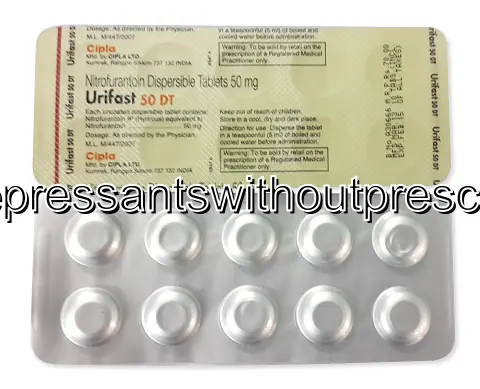| Package | Dosage | Price | Price per Dose | |
|---|---|---|---|---|
| Dosage: 50mg | ||||
| 300 pill | 50mg | €286.41 | €0.96 | |
| 200 pill | 50mg | €213.53 | €1.07 | |
| 100 pill | 50mg | €125.58 | €1.26 | |
| Dosage: 100mg | ||||
| 360 pill | 100mg | €327.32 | €0.92 | |
| 180 pill | 100mg | €172.55 | €0.96 | |
| 120 pill | 100mg | €134.21 | €1.12 | |
| 90 pill | 100mg | €110.92 | €1.23 | |
| 60 pill | 100mg | €80.79 | €1.36 | |
| 30 pill | 100mg | €47.92 | €1.60 | |

Nitrofurantoin Description
Overview of Nitrofurantoin
Nitrofurantoin is a well-known antibiotic primarily used to treat urinary tract infections (UTIs). It has been in medical use for many decades due to its proven effectiveness against common bacteria causing UTIs, such as Escherichia coli. This medication works by disrupting bacterial cell wall synthesis and inhibiting bacterial enzymes, which ultimately kills the bacteria or prevents their growth. Nitrofurantoin is available in various formulations, including capsules and liquid suspensions, making it versatile for different patient needs.
How It Works
Nitrofurantoin exerts its effect by entering bacterial cells and attacking several important processes. Its mode of action involves bacterial enzyme inhibition, which hampers DNA, RNA, and bacterial cell wall synthesis. This multi-target approach makes it difficult for bacteria to develop resistance quickly. It is highly effective specifically in the urinary tract because of its high concentration in urine, allowing it to act directly on the site of infection. Its antibacterial spectrum is broad, but it is particularly effective against gram-negative bacteria, which are common causes of urinary infections.
Advantages of Using Nitrofurantoin
One of the main advantages of nitrofurantoin is its targeted action in the urinary system. Since it concentrates in urine, it is effective at treating uncomplicated UTIs while minimizing systemic side effects. The drug is generally well-tolerated, especially for short-term use. It offers a good alternative for patients who are allergic to other antibiotics or those who have experienced adverse effects with other medications. Additionally, nitrofurantoin resistance remains relatively low, making it a reliable choice for urinary infections in many cases.
Potential Side Effects and Precautions
While nitrofurantoin is effective, it is not free from side effects. Common adverse reactions include nausea, vomiting, and diarrhea. Some patients might experience headache or dizziness. More rarely, prolonged use can lead to pulmonary reactions, such as pneumonitis or fibrosis, especially in individuals with pre-existing lung conditions. Hemolytic anemia may occur in patients with glucose-6-phosphate dehydrogenase (G6PD) deficiency. Kidney function should be monitored closely, as impaired renal function can affect drug clearance and increase the risk of toxicity. It is recommended to avoid using nitrofurantoin during the last trimester of pregnancy, as it may carry risks for the fetus.
Proper Use and Administration
For optimal results, nitrofurantoin should be taken exactly as prescribed by a healthcare provider. It is usually administered with food or milk to reduce gastrointestinal discomfort. Patients are advised to complete the full course of therapy, even if symptoms improve before finishing the medication. Proper hydration can also help prevent crystal formation in the urine, which is a rare side effect. Regular monitoring, particularly in long-term use or in patients with kidney issues, is important to ensure safety and effectiveness.
Conclusion
Nitrofurantoin remains a valuable medication in the treatment of urinary tract infections. Its targeted action, effectiveness against common bacterial pathogens, and generally favorable safety profile make it a preferred choice in many cases. However, like all antibiotics, it should be used responsibly and under medical supervision to minimize risks and ensure successful treatment outcomes. Patients should always discuss their medical history and any concerns with their healthcare provider before starting therapy with nitrofurantoin.
See Also
